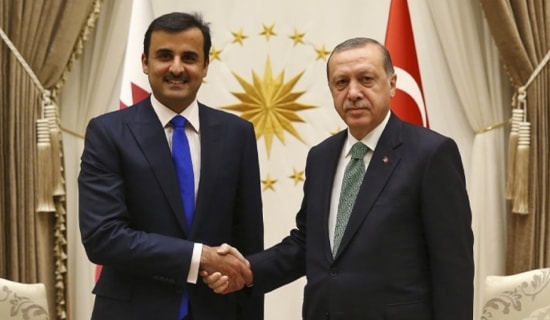An article in an Urdu-language daily called on Muslim leaders to establish a security council of Muslim countries like the United Nations Security Council and NATO to deal with the affairs of the Muslim ummah and to resolve conflicts, if necessary, by force.

Roznama Islam, which is an Islamist daily, is published from the Pakistani cities of Karachi and Lahore. The article, titled "The Security Council of Muslim Countries" and published in the July 18, 2019 issue of Roznama Islam, is by Saeed Ahmad Hasan.
The author outlines a framework in which the religious power Saudi Arabia, the economic power Turkey, and the nuclear power Pakistan could play an influential role in establishing a security council of Muslim countries to be guided by a shura ("advisory council").
"Muslims Are Ordered [In Koran 49:9] To Establish An International Security Council... Where Arrangements Are Made To Save All Of Humanity, Including Muslims, From All Conflicts And Riots"
The article begins by citing the Koranic verse 49:9 which, according to A.J. Arberry's translation, reads: "If two parties of the believers fight, put things right between them; then, if one of them is insolent against the other, fight the insolent one till it reverts to God's commandment. If it reverts, set things right between them equitably, and be just. Surely God loves the just." This verse is important for resolving any disputes happening on street corners or internationally, the author notes.
Saeed Ahmad Hasan, the author, explains: "In other words, Muslims are ordered [by Allah in this verse] to establish an international security council... where arrangements are made to save all of humanity, including Muslims, from all conflicts and riots, whose basis is completely fairness and justice, where the weak and victims find security, [and where] effective action is taken against oppressor and aggressor forces." He adds: "This is an order of Allah and its fulfilment is obligatory upon Muslims."
"It has been ordered in the aforementioned verse, whichever Muslim group even if it is in the form of a country, or in the form of a tribe, if it commits aggression, then it first be convinced through talks to desist; and if it doesn't listen, it be put in its place [through the use of force]. Due to the aforementioned verse not being implemented, our disputes [between and within Muslim nations] are resolved by non-Muslim countries, which are our political, cultural, civilizational and religious adversaries," the author observes.
He says: "In addition to the wars between Muslims [i.e., Muslim countries], there is a long history of oppression and atrocities on Muslims by non-Muslim countries... [The atrocities] are spread from Bosnia to Burma and India, in which Muslims can be seen burning in the furnace of atrocities; there is no one to inquire about them. The United Nations and the organizations working under it have proved to be totally biased and irresponsible with regards to the problems of Muslims."
"The imperative of this situation is that Muslims should have their own security council in which there is a system of shura and through collective and majority decisions, all countries together make arrangements for their security and internal stability," he notes.
"It Is Incumbent Upon Them [Saudi Arabia, Turkey And Pakistan] To Play An International Role With Regards To The Integrity And Unity Of The World Of Islam"
In the author's view, such a security council can be established if three powerful Muslim countries rise to the occasion and play an effective role. "In this regard, three countries can be considered responsible. It is incumbent upon them to play an international role with regards to the integrity and unity of the world of Islam. These countries are Saudi Arabia, Turkey, and Pakistan," he says.
"Due to the Harmain Sharifain [i.e., the cities of Mecca and Medina], the world of Islam has deep reverence for Saudi Arabia. This is a big reason which can be used for the unity of the ummah. Saudi Arabia has God-given oil wealth. And it has influence and reach in the nearby Arab countries," the author says.
"Turkey is rising fast in the world of Islam due to its administrative capacity, better governance, and fastest military and economic progress. Due to it being the descendant of the Ottoman Caliphate [which ended in 1924], Muslims have respect for it. It has better relations with Europe and America, etc. Turkey is that emerging star of the world of Islam for which the ummah has established great expectations." the author notes.
"The third country is Pakistan whose military power and defense production capacity is accepted in the world. Being geographically extremely important and due to the relationship with Asia's biggest power China, it is a strong and stable state," he says and adds: "Therefore, these three countries, jointly with other Muslim countries, should establish a joint forum [i.e., security council] which can be on the lines of the Warsaw Pact and NATO."




